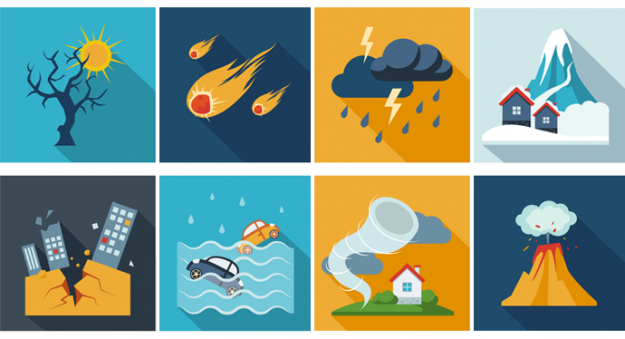

The regulatory environment for hiring compliance is only becoming more complex. In 2026, hiring...

This year has had its fair share of devastating storms and wildfires, highlighting the importance of preparedness for natural disasters. The need for being prepared goes double for healthcare organizations, which play a front-line role in helping people recover from disasters. Is your organization ready?
As healthcare HR looks for ways to think and act more strategically to serve their organizations, disaster preparedness is an excellent place to start. “Ensuring healthcare staff are able to respond in disasters is absolutely critical, and HR departments play a vital role,” says Amy Cullum, Senior Consultant at JSI Research & Training Institute, a public health consulting firm that has worked to improve emergency preparedness.
Here are some tips to prepare your healthcare workforce for natural disasters.
Organizations should conduct a hazard and risk assessment to know what disasters are most likely to occur and affect their facility, says Edward Colson, Principal at Ready Northwest, an emergency management and preparedness firm. “If facilities don't have a dedicated emergency management coordinator then HR can play a vital role in ensuring that everyone has had the needed training in disaster and emergency preparedness.”
Work with your risk management and hazard personnel to determine how disasters might affect your facility, Colson says. Understanding the risks your organization faces will help you determine how best to deploy your resources and employees in any response.
Practice makes perfect when it comes to being ready for disasters. Make time for employees to review plans and run through drills to ensure they’re ready for the worst-case scenario, experts say.
“Because use of disaster response protocols is both low-frequency and high-stakes, it is important to provide regular opportunities to practice,” Cullum says. Include short discussions about protocols in staffing meetings and plan regular disaster drills that can test protocols while refreshing staff knowledge of them, she says. “Linking these discussions to recent disaster experiences from elsewhere or to imaginary scenarios can help with staff engagement.”
Tracking hours and expenses is always important in healthcare, but during a disaster it’s even more vital, Colson says. Hours, expenses, disbursements and other financial expenditures during a disaster may be eligible for FEMA reimbursement, he says, but only if all the paperwork is in order.
HR processes will be more important than ever in the event of a disaster. As part of any disaster-response plan, go over your HR processes to ensure that software, paperwork and personnel can all handle the load.
Training employees in secondary roles is a great way to build collaboration and understanding in an organization. It’s also helpful when preparing for disaster response. The more skills employees have, the more effectively they can step in and help out when the need arises.
“Healthcare system HR departments should look for ways to leverage staff skills throughout the organization,” Cullum says. Incorporate cross-training into employee development plans and communicate the importance of broadening skills in a disaster-response context.
The strength of your organization’s response will depend on who can get to your buildings when disaster strikes. Communicate with employees about the importance of having an individual plan for disaster response, and make clear how and when you will communicate about work conditions after a disaster, such as making sure everyone understands what is meant by “crucial employees” in a disaster scenario.
In addition, HR departments should look for ways to support those individual plans, Cullum says. For example, employees may need help addressing the need for backup child-care or adult-day-care plans, she says. That support can mean the difference in whether an employee is able to show up.
The quality of your organization’s disaster response depends on training and preparedness. Healthcare HR can use its strengths to shine in these areas, while preparing the organization for the worst-case scenario.

The regulatory environment for hiring compliance is only becoming more complex. In 2026, hiring...

In the financial services industry, where trust, compliance, and accuracy are paramount, staying...

Global background checks are expected to be even more common in 2022 as many employers are taking...